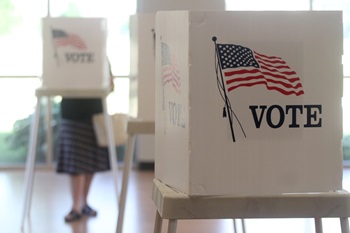<p>By Michael Green, Director, State & Local Government Relations, FMI</p><p><img src="https://www.fmi.org/images/default-source/blog-images/ballot-box-voting77c993fa-3b49-42f6-9c44-5f668a0f52ce.tmb-large-350-.jpg?Culture=en&sfvrsn=ebcbfd5_1" style="margin-bottom:10px;float:right;margin-left:10px;" class="-align-right" alt="Ballot Box Voting" sf-size="458043" />Beyond the critical stakes surrounding control of the presidency and U.S. Congress, voters nationwide also weighed in on a wide array of important policy issues at the state and local level. To this end, FMI’s <a href="https://fmi.us7.list-manage.com/track/click?u=03b48dc865603bf84c48b205e&id=fa74085f0c&e=f26a39bfb7">State and Local Ballot Measure Guide</a> tracked and provided information on 30 state ballot initiatives and 11 local initiatives of critical importance to the food and grocery industry. </p><p>One of the topics we followed most closely this year was minimum wage increases. Although a California initiative to raise the state’s minimum wage to $18 per hour failed 49% to 51%, measures increasing state minimum wages passed resoundingly in Alaska and Missouri. The Alaska measure additionally imposes a paid sick leave mandate on employers, as does a measure approved by voters in Nebraska. </p><p>At the local level, Portland, Maine, voters approved (51% to 36%) an amendment to the emergency wage provisions of the city’s minimum wage ordinance, which currently requires employers to pay 1.5x the minimum wage any time the state of Maine declares a state of emergency in a region that includes Portland, even if employment conditions within the city are not impacted. The just-approved initiative would limit emergency pay solely to periods when the city itself has declared a state of emergency. <br /> <br />In addition to wage and labor issues, we also tracked several tax measures on state and local ballots. Notably, nearly 80% of Oregon voters rejected the controversial Measure 118, which would have imposed a 3% gross receipts tax on businesses with more than $25 million in annual Oregon sales. (Read more about this measure in an August <a href="https://fmi.us7.list-manage.com/track/click?u=03b48dc865603bf84c48b205e&id=9527d9a371&e=f26a39bfb7">FMI State Report</a>.) Special thanks to the Northwest Grocery Association for their work leading the coalition against this potentially costly measure. </p><p>On another tax topic – local sugar sweetened beverage taxes – the news was less fortunate for our industry. Local beverage excise taxes are broad in scope, opaque to the consumer, and bring an alarming potential for declines in sales and corresponding job loss and reductions in hours. Accordingly, it was disappointing to see that Berkeley, Calif., voters approved removing the current January 1, 2027, expiration date for the city’s tax on the distribution of sugar sweetened beverages. Likewise, Santa Cruz Measure Z, which would impose a two-cents per ounce tax on distributors of sugar-sweetened beverages in the city, passed 52% to 49%.</p><p>See <a href="https://www.fmi.org/docs/default-source/state-affairs/fmi-2024-ballot-measure-guide.pdf?sfvrsn=de763d32_5">FMI’s 2024 State and Local Ballot Measure Guide</a> for information and results on all the ballot measures mentioned above and many more.</p>
[#item_full_content]





